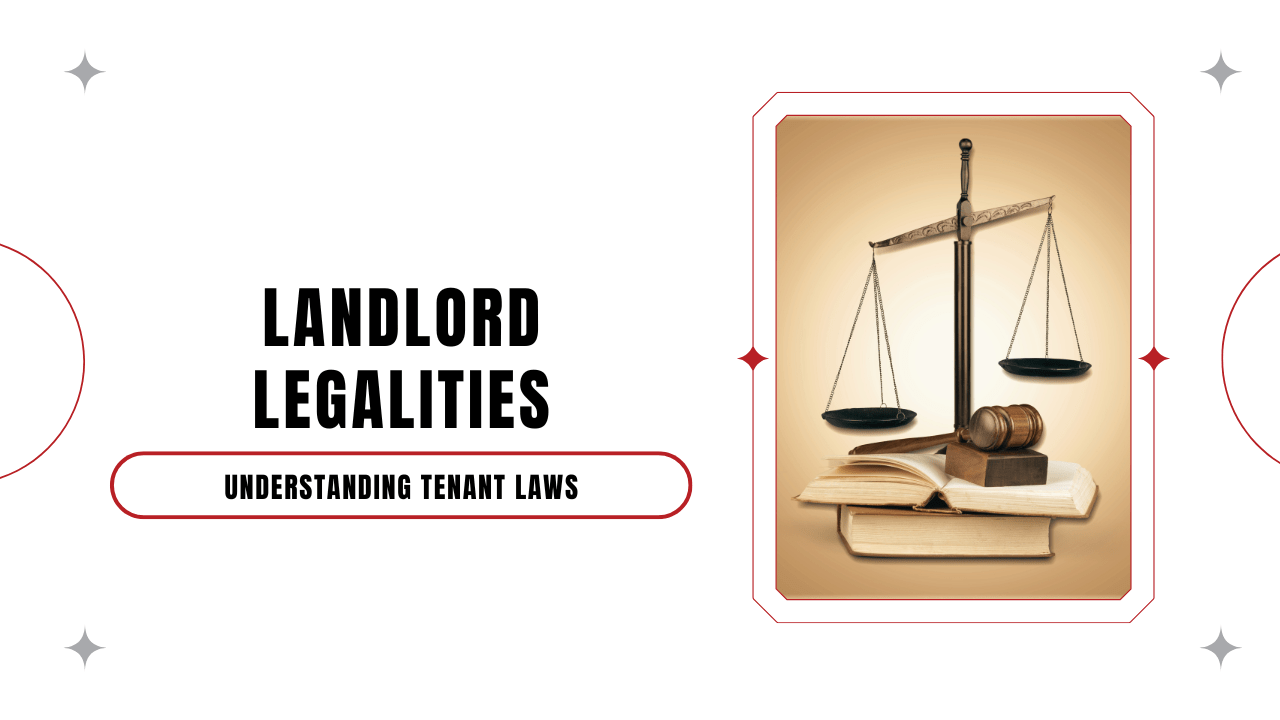When you’re renting out property in Arlington, there are two laws that you need to become familiar with. The Virginia Residential Landlord and Tenant Act (VRLTA) applies to all rental properties in the state, and the Virginia Uniform Statewide Building Code (VUSBC) establishes habitability standards for all buildings and homes in Virginia, whether they’re occupied by a tenant or the
property’s owner.
In addition to the statewide laws, rental property owners in Arlington need to know federal laws that focus on fair housing, discrimination, and important disclosures around things like lead based paint. We’re focusing on the most important tenant laws you need to know in Arlington, and how you can be sure you’re staying in compliance.
Virginia State Laws and Arlington Tenant Laws
Arlington does not have its own Landlord and Tenant Act. The state laws are applied to rental homes within the city and the county. There is, however, a Tenant Landlord Handbook that’s provided by The Department of Community Planning, Housing and Development. It covers the basics of the two laws we mentioned above, and offers resources to both owners and tenants.
Virginia Habitability Laws
There’s a Landlord Warranty of Habitability that is implied when you rent out your property in Arlington. As a rental property owner, it’s your responsibility to provide a home for tenants that is
safe and habitable. The property must meet all Virginia building and housing codes.
As a landlord who is complying with this habitability law, you are required to:
Provide your Arlington tenant with a property that has working electrical and plumbing systems.
Respond to any maintenance requests from your tenant right away, especially those emergency repairs that are needed to
maintain habitability standards.
Ensure the property is sanitary so it doesn’t constitute a health hazard.
If your property does not meet these requirements, tenants have the right to “repair and deduct,” which means they can fix the problem themselves and then deduct the cost of that repair from their next rental payment. Obviously, this is not a situation you want to invite. Make your repairs right away and keep your rental property in good condition.
Security Deposits in Arlington
Security deposits are an easy place for Arlington rental property owners to make mistakes. In fact, in our experience, if there’s going to be a dispute between you and your tenant, it might be over the security deposit. You cannot be too eager to keep the deposit. Damage can be paid for out of that money, but regular wear and tear cannot.
There are also specific timetables that apply to the return of the security deposit. There are limits to how much you can collect in a security deposit.
Here’s what you need to know:
Virginia state law prohibits you from collecting more than the equivalent of two months’ rent as a security deposit when a tenant is moving in. Most landlords will collect the equivalent of one month’s rent.
You need to return the deposit to the tenants who have moved out within 45 days of them vacating the property.
You do not have to provide any advance notice of the deductions you might be making, but you’ll want to include an itemized statement of any money that was withheld from the deposit, and what it was used for.
It’s permissible to use the security deposit funds for tenant damage that exceeds wear and tear standards, unpaid rent or utility bills, the vacancy period that was caused by the tenants breaking their lease, and any cleaning or hauling of personal possessions you needed to do after move=out. .
If your tenant disputes what you’ve withheld and you’re taken to court, you could find yourself ordered to refund the entire security deposit. Or, if you don’t return the deposit in time, you could face expensive penalties. This is why we always encourage owners to be detailed in their move-in and move-out inspections. Document everything carefully, and if a tenant pushes back against a deduction you’re making, decide how well you think your case will stand up in court.
Arlington Rentals and Notice of Rental Increases
Good news for Arlington rental property owners: there’s no rent control in Virginia. This means that you’re legally permitted to raise the rent as much as you think you should. However, there are state laws that impact how much notice is required before the rental amount changes.
Here’s what it boils down to: you must give your tenants a 30-day written notice of the amount that the rent will increase. An increase will typically happen at lease renewal time, so make sure you’re timing your offer of a
lease renewal with the rental increase you plan to implement.
If, after you have provided the notice of a rental increase to your tenant and that tenant objects to the new rent amount, they have the right to vacate the unit within that 30-day period.
Following Virginia Eviction Laws
Eviction should always be a last resort, and if you’re screening tenants well and keeping up your tenant relationship, evictions should be rare. But, things happen - even to excellent, well-screened tenants. Virginia law requires you to terminate your tenancy before you remove a tenant from the property. You can evict for common reasons such as nonpayment of rent and other lease violations. Every eviction must start with a written notice, and the amount of notice you give depends on the
reason for eviction. Here are the notice timelines you need to know and follow.
- Nonpayment of Rent. You will want to serve a Five-Day Notice to Pay Rent or Quit if your tenants are late paying rent. This notice gives tenants five days to pay the rent or move out of the home. If the five days come and go and your tenants still have not paid the rent, you can go to court to file the eviction lawsuit.
- Lease Violations. When a tenant violates the lease agreement and the violation can be remedied to bring the tenant into compliance, you can serve a Thirty-Day Notice to Cure or Quit. Maybe you’ve discovered an unauthorized pet. Your tenant will have 30 days to find a new home for that pet or move out of the property. If the tenant does not remedy the violation or move, then you can file an eviction lawsuit against the tenant at the end of the 30 days.
- Lease Violations that cannot be Remedied. When there’s a major violation in which the tenant cannot come into compliance, you’ll serve a Thirty-Day Unconditional Quit Notice. Perhaps the tenant caused major damage to the rental home. You’ll need to serve the notice that specifies this act and identify it as a breach of the lease. The notice gives the tenant 30 days to move.
- Criminal Acts. You’re not required to provide any notice when you evict because of a criminal act. This includes violence and drug activity.
Evictions can be extremely complicated, even when you know the law. Once the notice period passes, if you have not managed to resolve the situation with your tenant, it’s time to file in court, and you’ll want an
Arlington property manager to advise you, or an experienced eviction attorney. It’s very easy to make a mistake that could cost you the entire eviction. Get the help you need and protect yourself.
Federal and State Fair Housing Laws
It’s difficult to imagine a law that’s had a larger impact on the way properties are leased and managed than the federal Fair Housing Act. This is an important law that’s decades old and always evolving. You need to understand everything you can about fair housing and how it applies to your
rental home.
Fair housing violations are expensive, and they’ll also seriously damage your reputation as a landlord. Make sure you understand fair housing requirements so you can avoid potential risk, liability, and lawsuits.
The federal Fair Housing Act prevents you from discriminating against tenants or applicants based on:
- Color
- Race
- Disability
- Familial status
- National origin
- Religion
- Sex
These are considered “protected classes,” and you cannot discriminate against any applicant or tenant based on these criteria. This may seem easy enough, but you need to be aware of the potentially discriminatory language that’s sometimes used in listings and
marketing materials. You can also demonstrate perceived discrimination when you hold one applicant to different standards than another. Mistakes are easy to make. Be cautious, and always work with an Arlington
property manager if you’re in doubt about how you should proceed.








